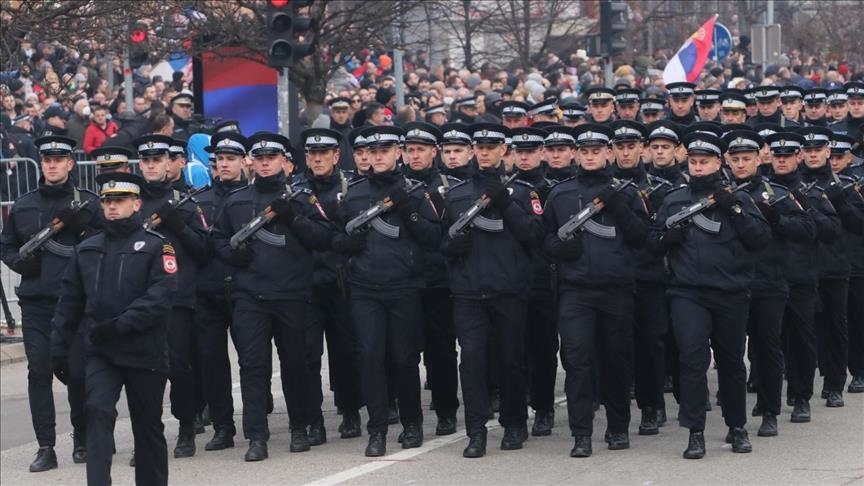ANALYSIS - Why is Republika Srpska Celebrating January 9?
By marking the January 9 anniversary, Milorad Dodik and his regime is showing that it does not respect Bosnian institutions

The author is an associate professor at the Faculty of Political Science at the University of Sarajevo.
ISTANBUL
On January 9 this year, Republika Srpska held a ceremony marking the 30th anniversary of its founding. Apart from the top echelon of this entity of Bosnia and Herzegovina, Russia's ambassador to Bosnia and a representative of the Chinese Embassy were in attendance. Two French members of the European Parliament also made their way to Banja Luka. Among the VIP guests was a convicted war criminal. What brought together this diverse gathering: the marking of a date that has been declared unconstitutional.
Thirty years ago this January, Bosnian Serb leaders set in motion a process of secession. Soon after Bosnia held its referendum on independence on March 1, the extremist Bosnian Serb leadership operationalized a plan for genocide. What ensued was a three-and-a-half-year assault on Bosnia. The most brutal phase of the genocide conducted against the Bosniak Muslim population across the whole country over three-and-a-half years was perpetrated in Srebrenica in July 1995.
After the end of the war, the key founding fathers of this entity were tried before the UN-established International Criminal Tribunal for former Yugoslavia (ICTY). Many people in Bosnia and beyond had hoped in the immediate post-war years that an internationally-established judicial truth would be accepted as fact and that the prison sentences meted out would be a deterrent to future war crimes. In fact, what happened was the complete opposite.
Not only did a widespread denial of the Bosnian Genocide take hold but there has been the trend of glorifying genocidaires and war criminals. Bosnian-Australian scholar Hariz Halilovich coined the phrase 'triumphalism' to denote this as the latest stage of the Bosnian Genocide.
What we have been witnessing since the summer of 2021 and counting is both the continuation of 'triumphalism' along with secession in progress. From late July last year, Bosnian Serb officials have been effectively blocking the country's functioning in retaliation for the decision of the former High Representative to outlaw genocide denial. In December, the National Assembly of Republika Srpska paved the way for this entity to adopt legislation on establishing parallel institutions in defense, security, taxation, and judiciary.
What is Dodik's purpose?
The January 9 ceremony held this week comes on the heels of this secession in progress. The marking of this controversial date raises three problems: (i) Bosnia's Constitutional Court ruled that January 9 was unconstitutional, (ii) January 9 is deeply offensive to Bosniaks and Croats who have suffered as a result of the secession and war, and (iii) marking it this year is a poke in the eyes of not only Bosniaks but also of the US. The Biden administration imposed new sanctions on Milorad Dodik in early January but these and previous sanctions have had no bearing on his behavior. On the contrary, they seem to embolden him. His defiant tone on January 9 confirmed this.
By marking the January 9 anniversary, Dodik and his regime is showing that it does not respect Bosnian institutions. By insisting on holding these unconstitutional anniversaries, he is trying to show that Bosnia's state-level institutions are dysfunctional and that their reach does not extend to the whole country. Inviting foreign politicians and diplomats aims to show that there is international support for his policies. His political opposition may disagree with his tactics but is on the same page on this and many other issues.
Where Bosnia is now headed remains to be seen. Most analysts agree that this is the worst political crisis since the signing of the Dayton Peace Accords in 1995 and a growing number is predicting secession. For clues, they need look no further than the entity's current PM. Asked on the Republika Srpska TV how he saw this entity's future in thirty years, his reply was simple: Independent.
*Opinions expressed in this article are the author's own and do not necessarily reflect the editorial policy of Anadolu Agency.
Anadolu Agency website contains only a portion of the news stories offered to subscribers in the AA News Broadcasting System (HAS), and in summarized form. Please contact us for subscription options.

